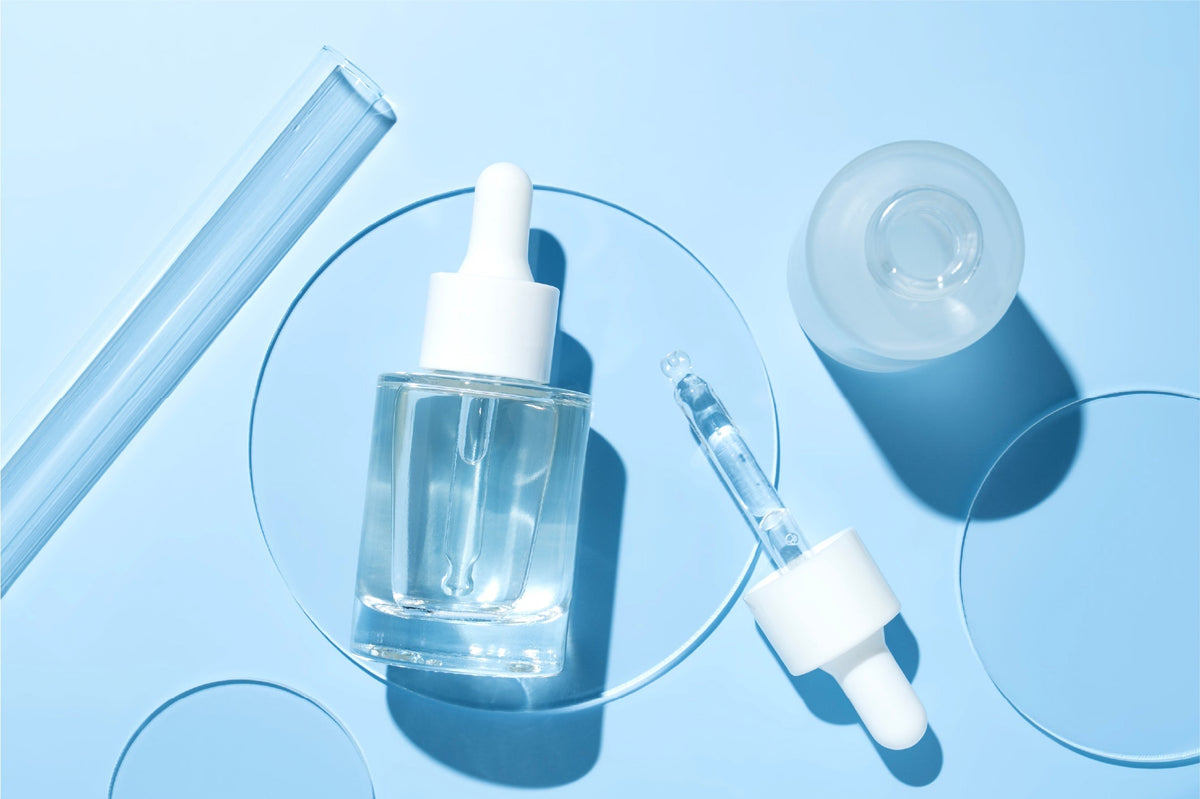
Skincare trends may come and go, but a few ingredients manage to secure a permanent spot in beauty lovers’ routines. Glutathione is one of them. Dubbed the “mother of all antioxidants,” it’s been celebrated for its skin-brightening, age-defying, and health-boosting benefits. But is it really worthy of all the hype? Time to dig deeper.
What is Glutathione and How Does It Work for Skin?
As a powerhouse antioxidant that your body naturally produces in every single cell, Glutathione is a tiny yet mighty molecule made of three amino acids: glutamine, cysteine, and glycine. Unlike ingredients that work only on the skin’s surface, it gets to work deep within, repairing, protecting, and rejuvenating skin at the cellular level. In skincare, it shines in two ways: it shields your cells from free radicals that speed up aging, and it helps regulate melanin production, reducing dark spots and promoting a more even, radiant complexion.
Top Glutathione Benefits for Skin
Glutathione protects, brightens, hydrates, and smooths – basically, it’s your skin’s all-in-one upgrade. Here’s what it can do for you.
1. Brightening and Skin Tone Improvement
Ask anyone about Glutathione, and they’ll likely mention its brightening power first. It works by slowing tyrosinase, the enzyme that triggers melanin production. Over time, with regular use, be it in supplement form, skincare products, or IV treatments, you may notice fewer dark spots, less sun damage, and a more uniform tone.
2. Anti-Aging Effects
When it comes to slowing down the clock, Glutathione is in a league of its own. It fights free radicals, protects collagen and elastin, and keeps your skin’s support structure strong. With regular use, you’ll likely see fewer fine lines, less sagging, and a smoother texture. Basically, it’s your skin’s own little bodyguard against aging.
3. Skin Hydration and Glow
Glowing skin isn’t just about looking even-toned – it’s about feeling nourished and hydrated. Glutathione works behind the scenes to fortify your skin’s barrier, helping it hold on to moisture longer. That means softer, plumper skin and a glow that looks like you’ve just had the best night’s sleep.
How to Use Glutathione for Skin?
When it comes to reaping Glutathione’s benefits, you have several options. Each method has its own pros, cons, and suitability depending on your lifestyle and skin goals.
1. Oral Supplements for Skin Health
The simplest way to get your Glutathione fix? Capsules or tablets. They’re easy to pop into your morning routine and widely accessible.
Efficacy: Studies show they can work well, especially if you’re patient and consistent for a few months. Bonus points if the formula includes Vitamin C – it helps your body absorb Glutathione better.
Safety Tip: Stick to trusted, quality-tested brands so you know you’re getting the real deal.
2. Topical Glutathione Products
From silky creams to glow-boosting serums and pampering sheet masks, topical Glutathione gives your skin an antioxidant treat right where it needs it most. It might not sink deep, but it still works wonders for brightening and fading surface spots. Plus, it’s often teamed up with favourites like Niacinamide, Hyaluronic Acid, or Kojic Acid for that extra oomph.
3.Intravenous Glutathione Therapy
Want results, fast? IV Glutathione is given directly into your bloodstream by a trained professional, skipping the digestive process so your body can soak up every drop.
Potential Benefits:
- Faster visible results in skin brightening
- Boosts overall antioxidant levels in the body
But remember: This should only be done by a licensed medical professional in a sterile setting.
Side Effects of Glutathione for Skin
Like any supplement or treatment, Glutathione isn’t without potential downsides.
1. Possible Mild Side Effects
- Nausea or stomach upset (common with oral supplements)
- Mild skin rashes or itching (possible with topical use)
- Temporary bloating or cramping
These are usually mild and subside when dosage is adjusted or discontinued.
2. Rare and Severe Side Effects
- Allergic reactions, including swelling or difficulty breathing
- Excessive or prolonged high doses may impact kidney or liver function.
- Respiratory issues linked to high-dose IV Glutathione (rare but reported in some cases)
Who Should Avoid It? If you’re pregnant, breastfeeding, have asthma or allergies, make sure to get a green light from your healthcare provider first.
Is Glutathione Safe for All Skin Types?
When it comes to skincare, one size rarely fits all – especially when you’re dealing with active ingredients. So, before you jump on the Glutathione bandwagon, it’s worth asking: is it safe for your skin type?
1. Glutathione for Sensitive Skin
Because of its antioxidant nature, Glutathione is generally well-tolerated by sensitive skin. However, when using topical forms, start with a patch test to ensure no irritation occurs. For oral supplements, begin with a lower dose and monitor how your skin and body respond.
2. Glutathione for Dark Skin
There’s a common misconception that Glutathione “bleaches” dark skin – it does not. Instead, it helps regulate melanin production to achieve an even tone, regardless of your skin color. People with deeper skin tones may notice a gradual brightening effect and reduced pigmentation spots, but their natural skin tone will remain.
Conclusion
Glutathione is more than just a skincare trend – it’s a scientifically backed antioxidant with multiple benefits for skin health. And with the right approach, it could very well be the secret weapon your skincare routine has been waiting for.
FAQs about Glutathione for Skin
1. Does Glutathione really lighten skin?
Yes, Glutathione can help lighten and brighten the skin, but it works gradually and naturally rather than giving an instant bleaching effect. It reduces melanin production by inhibiting the enzyme tyrosinase, which is responsible for pigment formation. However, results vary from person to person and depend on factors like dosage, method of use, and your body’s natural Glutathione levels.
2. Which is better, Glutathione or Kojic Acid?
Glutathione is an antioxidant that works internally and on a cellular level to reduce melanin production, offering overall brightening and anti-aging benefits. Kojic acid, on the other hand, is a topical ingredient that works directly on the skin’s surface to lighten dark spots and improve tone. If you want deeper, whole-body effects, Glutathione is the better choice. If you’re looking to target specific areas quickly, kojic acid might be more effective.
3. Does Glutathione remove tan?
A tan is essentially your skin’s defense mechanism against UV damage, caused by increased melanin production. Since Glutathione helps slow down melanin synthesis and supports skin cell renewal, it can gradually lighten the darker pigmentation caused by sun exposure. Keep in mind that while it can restore your skin to its natural tone, results may take several weeks or months, depending on the depth of your tan and your skin type.




